The Brain
The brain is one of the most complex and important organs in the human body. It controls all the functions of the body, allows us to think, feel, and move, and enables us to experience and interact with the world around us.
Structure of the Brain
The brain is divided into several main parts:
- Cerebrum: The largest part of the brain, responsible for voluntary actions, intelligence, and sensory processing.
- Cerebellum: Located at the back of the brain, responsible for coordination, balance, and muscle control.
- Brainstem: Connects the brain to the spinal cord and controls basic functions such as breathing, heart rate, and digestion.
- Thalamus: Acts as a relay station for sensory information.
- Hypothalamus: Regulates body temperature, hunger, thirst, and other basic needs.
Functions of the Brain
The brain is responsible for a wide range of functions, including:
- Thinking and problem-solving
- Emotions and mood regulation
- Memory formation and retrieval
- Sensory processing (seeing, hearing, touching, tasting, smelling)
- Muscle control and coordination
- Regulation of basic bodily functions
Brain Study Guide
Here are some key concepts to understand when studying the brain:
- Brain Parts: Be able to identify and describe the functions of the cerebrum, cerebellum, brainstem, thalamus, and hypothalamus.
- Brain Functions: Understand the roles of the brain in controlling thoughts, emotions, memory, and bodily functions.
- Neurons: Learn about the basic building blocks of the brain and how they communicate with each other.
- Brain Health: Explore ways to keep the brain healthy, such as through proper nutrition, exercise, and mental stimulation.
Understanding the brain is an ongoing area of scientific research, and new discoveries are constantly being made about its structure and functions.
.◂Science Worksheets and Study Guides Fourth Grade. Rocks and minerals
Study Guide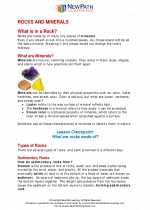 Rocks and minerals
Rocks and minerals  Activity Lesson
Activity Lesson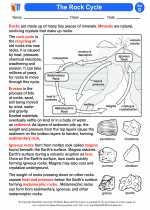 The Rock Cycle
The Rock Cycle  Worksheet/Answer key
Worksheet/Answer key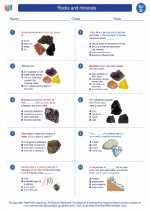 Rocks and minerals
Rocks and minerals  Worksheet/Answer key
Worksheet/Answer key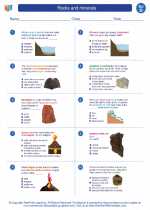 Rocks and minerals
Rocks and minerals  Worksheet/Answer key
Worksheet/Answer key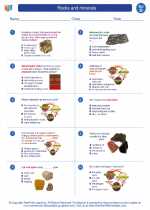 Rocks and minerals
Rocks and minerals  Worksheet/Answer key
Worksheet/Answer key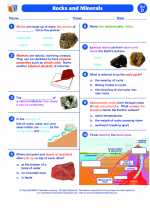 Rocks and Minerals
Rocks and Minerals  Vocabulary/Answer key
Vocabulary/Answer key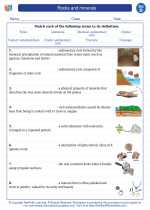 Rocks and minerals
Rocks and minerals  Vocabulary/Answer key
Vocabulary/Answer key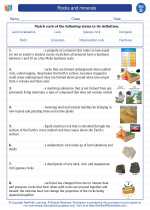 Rocks and minerals
Rocks and minerals  Vocabulary/Answer key
Vocabulary/Answer key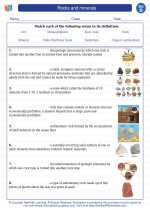 Rocks and minerals
Rocks and minerals  Vocabulary/Answer key
Vocabulary/Answer key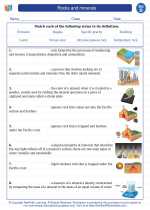 Rocks and minerals
Rocks and minerals 

 Activity Lesson
Activity Lesson
 Worksheet/Answer key
Worksheet/Answer key
 Worksheet/Answer key
Worksheet/Answer key
 Worksheet/Answer key
Worksheet/Answer key
 Worksheet/Answer key
Worksheet/Answer key
 Vocabulary/Answer key
Vocabulary/Answer key
 Vocabulary/Answer key
Vocabulary/Answer key
 Vocabulary/Answer key
Vocabulary/Answer key
 Vocabulary/Answer key
Vocabulary/Answer key

The resources above cover the following skills:
Concepts of Earth Science (SD1, SD2, SD3, SD4)
The student demonstrates an understanding of geochemical cycles by describing that most smaller rocks come from the breaking and weathering of larger rocks as part of the rock cycle.
The student demonstrates an understanding of geochemical cycles by recognizing the physical properties of water as they relate to the rock cycle.